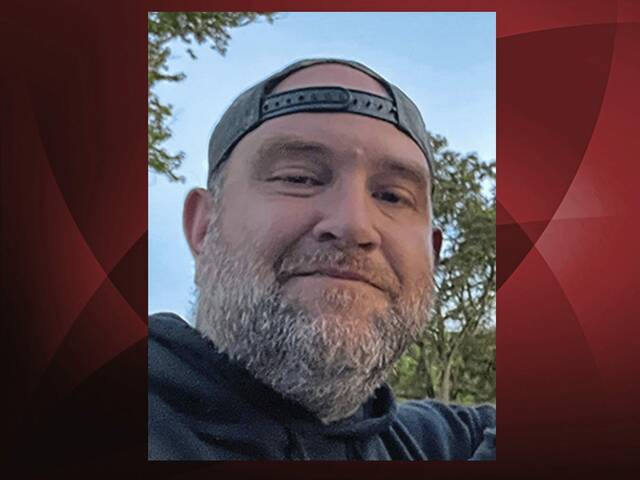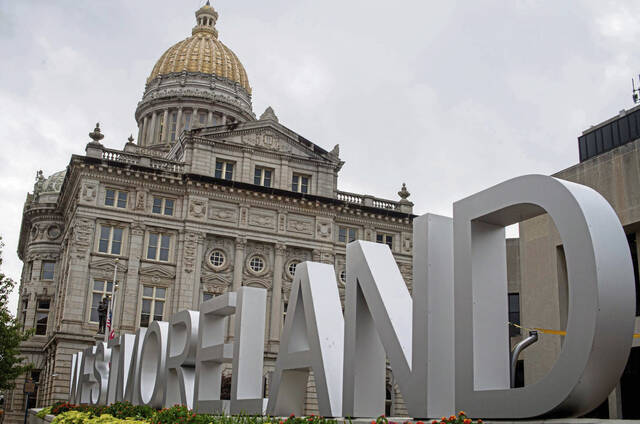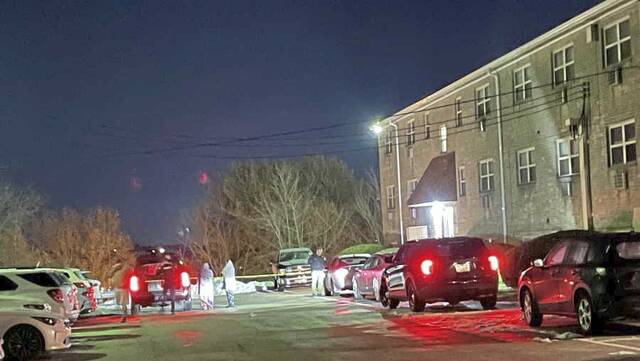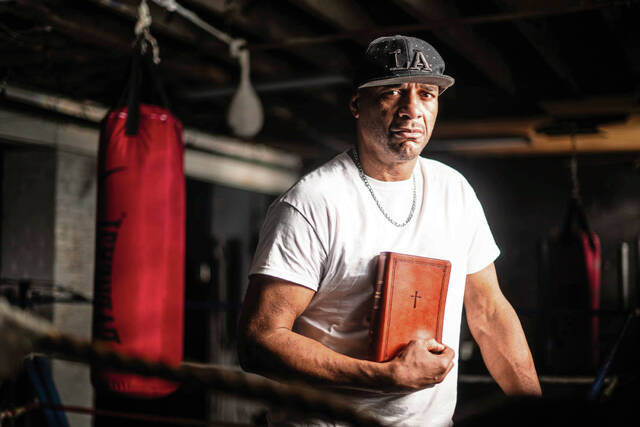Editor’s note: ‘What’s That?’ is a recurring feature in the Tribune-Review’s Westmoreland Plus edition. If there’s something you’d like to see explored here, send an email to gtrcity@triblive.com
When asked to name famous people who called the Latrobe area home, many would mention golfing legend Arnie Palmer or Fred Rogers, the beloved children’s television host.
Fewer likely would think of William Findley.
But the Irish immigrant honored with a Pennsylvania historical marker not far from Latrobe’s city hall was a true renaissance man who played prominent roles in the early development of the state and the nation.
A farmer, weaver and gristmill owner, Findley represented his adopted Westmoreland County community as a legislator in Pennsylvania’s General Assembly and then in Congress.
A leader who navigated the troubled waters of Southwestern Pennsylvania’s Whiskey Rebellion, he later wrote a book about that divisive period of the late 18th century.
Born in Ulster, Ireland, in about 1741, Findley made his way to Pennsylvania about two decades later. He served in the Revolutionary War, as captain of a Cumberland County militia unit.
He completed a stint as a county commissioner in Franklin County before moving in 1783 to a large expanse of land he purchased between the later sites of Latrobe and Saint Vincent College, according to local historian Robert B. Van Atta.
“He owned most of what is now the Sixth Ward of Latrobe and continuing into Unity Township, toward Lloydsville,” said Mary Lou Townsend, president of the Latrobe Area Historical Society.
By all accounts, despite the lofty political stations he attained, Findley lived simply — initially residing in a log house he’d built.
Findley represented Westmoreland County in the Pennsylvania convention that ratified the federal Constitution.
He introduced a resolution favoring free education for the poor; as a member of the Anti-Federalist camp that was concerned about placing too much power in the hands of a central government, he also signed a Minority Dissent to the Constitution.
He was elected to the state House in 1790 and then served as the first Congressman from the area, with terms from 1791 to 1799 and from 1803 to 1817. During the four-year gap, he served in the state Senate.
With his Anti-Federalist stance, Findley drew the ire of Alexander Hamilton, the U.S. Treasury Secretary — particularly during the 1794 Whiskey Rebellion, when Hamilton supported severe measures against those who opposed the federal whiskey excise tax that triggered the unrest.
In a two-volume biography, “William Findley — From West of the Mountains,” author John Caldwell noted Findley was “a consistent enemy of the excise in any of its forms.”
But Findley urged peaceful petition in an attempt to repeal the whiskey tax rather than the violent acts that were perpetrated against some of those charged with collecting it.
During a community meeting at current-day Brownsville, after the whiskey tax was enacted in 1791, Findley “proceeded to shew (sic) the bad effects of violent opposition to it, and endeavoured to convince them that the only choice they had was either to pay the tax, or otherwise to refrain from stilling, and suggested that to refrain from stilling, altogether, was a much more tolerable evil than any mode of actual opposition.”
Regarding Hamilton, Findley wrote, “Something serious is brooding respecting the Excise law in our Country. The vengeful Secretary wishes to make us examples, him and others of the Same Stamp urge the president on in that business.”
When said president, George Washington, mustered troops and marched them into Pennsylvania with the aim of putting down the rebellion, Findley was among representatives of western counties who met with the commander in chief at Carlisle — in the hopes of persuading him that most citizens would honor the tax and of dissuading him from proceeding farther west.
Findley and others presented signed resolutions gathered from residents of some Southwestern Pennsylvania townships, pledging, in part, to not “oppose the execution of the acts for raising a revenue on distilled spirits and stills.”
But Washington considered that statement “not sufficiently unequivocal” to warrant disbanding his forces and indicated “some atonements would be required for the infractions committed against the laws.”
The troops continued their advance, as far as the confluence of the Youghiogheny and Monongahela rivers.
They eventually withdrew by late November of 1794 — but not before some of the soldiers reportedly dragged men out of their beds in the middle of the night and confined them in cold, damp buildings without food or clothing.
The prisoners were marched to Philadelphia, but some never were charged. According to Caldwell, Findley denounced the episode as an outrage “against humanity and decency.”
To counter reports that appeared in the press at the time, Findley wrote his own version, published just two years after the fact, “History of the Insurrection in the Four Western Counties of Pennsylvania: in the Year M.DCC.XCIV, with a recital of the circumstances specially connected therewith: and an historical review of the previous situation of the country.”
Known as “The Venerable Findley” and “Father of the House,” his long years of public service kept him away from his Westmoreland County home for extended periods.
Still, he managed to have eight children during the first two of his three marriages.
A longtime elder in the Unity Presbyterian Church, Findley was laid to rest in Unity Cemetery in 1821.
A map published in 1867 shows a successor still was operating the milling business he’d owned along the western bank of the Loyalhanna Creek.
Water diverted from the creek powered the mill, which was situated about where the Castle Co-Packers bottling plant stands today.
Dedicated in 1994, Findley’s historical marker originally was erected in the vicinity of the St. Vincent Basilica, but it was targeted twice by vandals.
It was restored and moved to its current location, along Main Street in downtown Latrobe.








